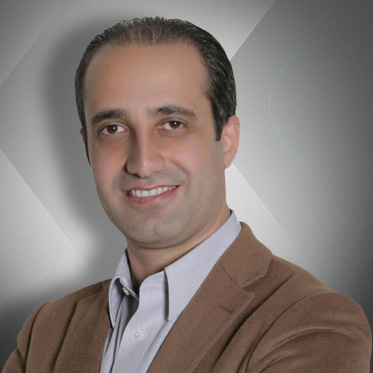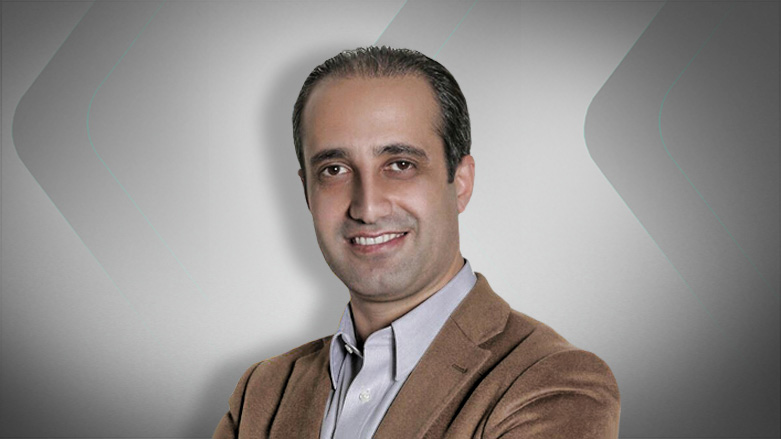
Honar Issa
Author
The 'tripod' of educational quality
"For Kurdistan to prosper economically, we must foster a high-quality learning environment. A sustainable, high-quality learning environment is the basis for the betterment of communities."

Have you ever tried to sit on a stool with two legs? It is precarious, at best! But a stool with three legs is solid, stable, and steady. The same could be said of education.
In the past decades, governments in the Kurdistan Region, through the education ministries, endeavored to improve the educational system. In a few initiatives, the strategies they adopted were quite successful. However, overall, Kurdistan has been suffering from a lack of clear policies toward creating high-quality learning environments.
For Kurdistan to prosper economically, we must foster a high-quality learning environment. A sustainable, high-quality learning environment is the basis for the betterment of communities. Think of the three-legged stool as a tripod for the learning environment to be solid, stable, and steady. Like that stable stool, this environment will be built on three legs: education system, students, and faculty.
It is imperative for schools and universities to seek accreditation for their institutions and programs to ensure a good educational system. The accreditation itself is a voluntarily rigorous process of self-assessment by peers that emphasizes quality assurance and the commitment to continuous quality enhancement. As one of the requirements of the accreditation process, a strategic plan must be developed that clearly reflects the purposes stated in a school’s vision and mission statement. Additionally, there must be a clear and transparent organizational structure and governing board which is necessary to create and sustain scholarly activities.
In Kurdistan, we do not yet have an accreditation system that meets international standards. The Kurdistan Regional Government (KRG) can initiate a National Accreditation Body while following the standard requirements mandated by reputable international accreditation bodies to support learning entities to meet those requirements. The American models are especially good examples as most national accrediting bodies follow them. However, to establish such a body, effective legislative involvement by the Kurdistan Parliament is imperative for the body to remain neutral under the supervision of the KRG Council of Ministers.
To establish the second leg, the government should support the notion of student-centered learning in schools to nurture competent students where continuous self-assessments can be achieved. These environments must be transformed into an interactive learning arena where a learning ecosystem can be created that signifies the impact of learning on learners and reaching overarching goals, rather than a traditional assessment of results and examination scores. This enhances the critical thinking and soft skills of students; two significant components that are missing in the learning environments in Kurdistan.
The educational institutions should create a strategy to instill in students the notion of lifelong learning. Obtaining credentials should not mean the end of education. Instead, it should be the beginning of a lifelong process that continually updates knowledge and skills as the demands of life and the economy changes and evolves over time. For this, a campaign of “Reading Matters” can raise awareness and be the basis of a lifelong learning process. Reading, in combination with other extracurricular activities, will consequently increase students’ general knowledge and will help develop an intellectual mind applied to critical thinking.
Engaging students at an early age in research activities will have multi-faceted dimensions; they will develop analytical skills (critical thinking) required to identify issues and to solve them academically. They will also significantly develop their reading and writing skills.
Needless to say, a state-of-the-art academic curriculum in line with the accreditation requirements will strengthen students’ intellectual minds. Due to the status of the region, the KRG should also mandate institutions to develop a Peace and Society curriculum entrenched into an academic program thatwould enhance tolerance in society. Also, emphasis should be put on offering subjects such as mathematics and physics to all students, so that they can develop analytical skills.
Finally, developing the capacities of teachersis an essential tool to strengthen the third leg of the stool. There are three major ways to develop that capacity: give reasonable hours to teach and considerable time to conduct research, set up workshops and short training sessions, and encourage extracurricular activities. There should be a procedure where instructors conduct continuous self-assessment through defining Key Performance Indicators.
So, how does Kurdistan achieve these three stable elements for its educational system that will support its national aspirations? First, education ministries shoulddraft strategic plans and roadmaps, and develop certain policies required to promote the education sector. These plans should strengthen the performance of the education system, student learning, and teachers’performance and they mustbe specific, measurable, achievable, realistic, and timely. The Kurdistan Parliament should engage with educational experts andwork closely with educational entities to develop these policies and oversee their implementation.
Any policy developed to improve the learning environment should be examined by adopting a pilot study strategy. Duhok, as a province within the KRG, has all the attributes a place needs to implement pilot projects and identify pros and cons. Once successful, the implementation of policies can be expanded to the rest of the country.
Dr. Honar Issa is the Secretary of the Board of Trustees at The American University of Kurdistan (AUK).
The views expressed in this article are those of the author and do not necessarily reflect the position of Kurdistan 24.
Editing by Karzan Sulaivany